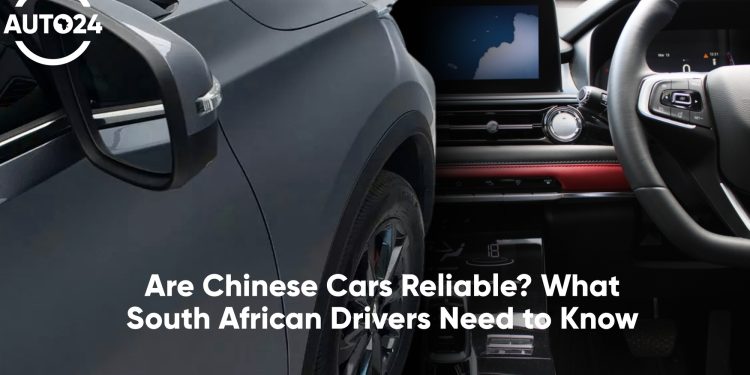Chinese automotive brands like Chery, GWM, Haval, and BAIC have surged in popularity across South Africa, offering high-tech features and affordable pricing. But lingering questions remain: Are these cars truly reliable? And what should you expect when driving one in local conditions?
In this deep dive, we explore reliability perception, after-sales support, warranty coverage, and real-world experiences—to give you a balanced 2025 perspective.
2. Market Context & Reliability Concerns
Rapid Growth, Lingering Doubts
Chinese vehicles have experienced a 92% surge in South African used-car sales, with brands like Chery and Haval leading the charge.
Yet industry insiders like AutoTrader’s Sean Nurse flag concerns: weak dealership networks, spotty parts availability, and “unproven” long‑term reliability.
Per his assessment, Chinese brands need around 50 local dealerships to support customers effectively—and that threshold hasn’t been met. Until then, reliability remains a valid concern.
3. Warranty Packages: A Confidence Booster
Generous New-Vehicle Warranties
Manufacturers are tackling reliability concerns by offering market-leading warranties, for example:
- Chery (Omoda) offers a 5-year service plan, 5-year vehicle warranty, and 1 million km powertrain cover.
These bold guarantees reflect brand confidence and may mitigate risk for buyers.
4. Independent Reliability Data & Heavyweights
J.D. Power Insights
China-wide, reliability indices hover around 180 problems per 100 vehicles (PP100), notably higher than market-leading Japanese and European brands.
This suggests Chinese vehicles aren’t yet at the same dependability level as traditional global brands—though improvements are ongoing.
5. Owner Feedback & Real-World Tests
Positive Experiences
On local forums, Haval owners report solid reliability and parts availability. One user noted:
“Spare parts not an issue… my insurance premium is inline with the typical cars.”
Cautionary Tales
Other users highlight long delays obtaining replacement parts, citing months of waiting time , and note that some brands disappear after launch, leaving owners stranded.
Similarly, ongoing forum threads express concerns over “poor drive quality” and a lack of local after-sales infrastructure.
6. Build Quality & Safety Performance
OEM Warranty vs Real-World Durability
Despite early skepticism, many modern Chinese models prove their mettle. A recent Omoda owner shared how their SUV sustained a 120 km/h tyre-rim impact with damage limited to the undercarriage—no structural issues.
Warranty Strings & Recalls
However, serious recalls have occurred. For example, Chery’s Omoda 5 and Tiggo 7 Pro faced rear-axle and brake-system recalls in multiple markets—signs of growing reliability vigilance.
7. The Evolving Resale Value Equation
As trust in Chinese brands is hard-earned, so is resale value. Though low initially, resale values for brands like Chery, GWM, BYD are steadily improving, especially in key SUV segments. Evidence shows buyers now regard these vehicles as legitimate long-term answers.
8. How Trust Is Built: Network, Support & Perception
Per motoring expert Marius Roberts:
- Quality has improved markedly due to co-development deals with global automakers.
- Brands like Haval benefit from strong dealership ties with legacy brands, which bolster reliability and after-sales confidence.
9. Key Pain Points & Risk Factors
- Limited parts availability can result in repair delays, particularly for less-established models .
- Service network size remains small compared to Japanese/Korean marques.
- Early reliability ratings (e.g., J.D. Power) aren’t yet on par with traditional global brands .
- Ongoing recalls and safety issues, while handled promptly, do raise questions about initial quality control.
10. Why Many Drivers Still Feel Good About Buying In
- Strong warranty packages and after-sales investment give buyers peace of mind.
- Feature-rich vehicles at competitive price points appeal to modern buyers .
- Resale value is rising, signifying growing market trust.
- Co-manufacturing partnerships with global automakers have upped drive quality and tech sophistication .
Final Verdict: Are Chinese Cars Reliable in SA?
Here’s a risk-benefit weight-up:
| Pros | Cons |
|---|---|
| Competitive pricing + rich features | Parts delays possible |
| Generous warranty coverage | Smaller dealership base |
| Improving build & tech quality | Dependability still trailing top global brands |
| Rising resale value | Isolated recall events noted |
Conclusion: Modern Chinese cars like Haval, Chery, and Omoda are fairly reliable for everyday use—especially with today’s setup. But buyers should assess specific model support, dealership reach, and warranty terms before committing.
A Guide to Smarter Purchasing
- Pick well-supported models (Haval, Chery, Omoda).
- Check dealership proximity and stock of parts.
- Buy only models with strong warranty (at least 5 years).
- Read local owner reviews, especially on reliability and spares.
- Factor in resale value and long-term serviceability.
AUTO24’s Support for Chinese-Car Buyers
- Certified Pre-Owned Inspections uncover reliability red flags.
- Tools allow buyers to compare warranty coverage and dealer network.
- Partner finance deals cater to Chinese models, reflecting growing acceptance.
Conclusion
Chinese vehicles have come a long way. In 2025, they offer an attractive combination of price, features, and emerging reliability—particularly with strong warranties and improved support. But…
They’re not at the level of long-established brands just yet. Do your homework, choose wisely, and enjoy how these modern Chinese rides are redefining reliability in South Africa





